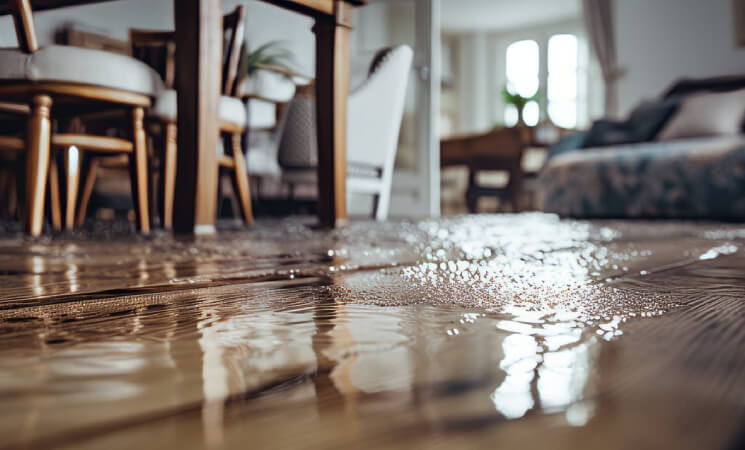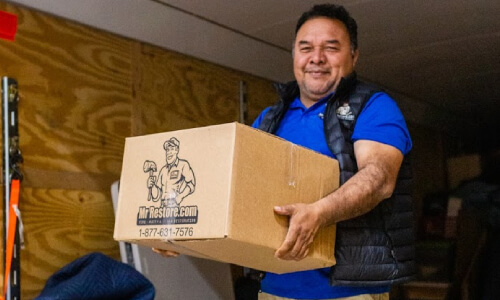| How To Prevent Fire Hazards
Table of Contents
Tips On Preventing Fire Hazards
Final Thought
|
How To Prevent Fire Hazards
The furnace and heating are merely one source in the household that homeowners are responsible for ensuring are maintained adequately for optimum comfort but primarily for fire safety.
A fire can start for many reasons and happen in any area of the home. The priority is to have a plan in place to be prepared if it occurs, more so look at preventives to avoid the potential from the beginning.
As suggested by Alan Collins, a certified specialist from “Jim’s Test and Tag Fire Safety franchise,” many residential fires are preventable. These insights come on the heels of intensive training and years working with fire safety.
In preventing furnace-related fires, homeowners can enlist professional, credentialed heating contractors for preventive inspections and maintenance.
The techs will inspect for defects within the system, damages, possible deterioration, and make necessary corrections before these can turn into major problems. Simple steps can be followed with any situation allowing problems to be averted.
Tips On Preventing Fire Hazards
Winter brings fire safety to the forefront of homeowners’ minds with furnaces, fireplaces, and candles that set the household comfort and ambiance.
Fires can start for a number of reasons in any area of the house. While you can be optimally prepared, the goal is prevention to protect the structure and those living in the home before there’s a problem.
Smoke detectors, alarms, and extinguishers, keeping vital documents and valuables in fireproof boxes or safes, and developing a plan for escape are hazard tools if a fire occurs. Still, you can implement some easy tips to remain safer sooner.
TIPS on What To Do If A Fire Starts
1. Unplug when through
When electronic devices including game consoles, laptops or desktops, TVs, and on, are left plugged in, the electricity continues to flow even if turned off meaning there’s the potential for overheating or a surge resulting in a possible fire.
When these items are off, no one pays attention to them because the understanding is they pose no danger with the power off. Becoming more informed about continuous energy usage and the fire hazard it poses will allow better decision-making.
If you contact your utility provider, a representative will do a walk-through with you to assess potential hazards and instruct you on ways to fireproof the household from an electrical standpoint.
2. Always stay in the room with active flames
When lighting candles, the fireplace, or cooking where there’s excessive heat, you want to remain in attendance to keep an eye on the flames. This will allow an immediate reaction if a problem arises. In these areas, smoke detectors should be installed and fire extinguishers should be nearby.
With a fireplace, a screen needs to be fitted to the surround to prevent embers from being thrown out into the living space. It will also keep small children and pets from harm.
In that vein, if you have little ones in the house, curious kids will be attracted to the fire. Plus, there’s every possibility for roughhousing and the candle to be topped over. It’s important to keep these out of reach or forgo them until the children are more mature.
3. Flammable materials should be stored away from heat
Flammable materials can include many things including linens, paper products, your clothing and hair and so much more. Where there are flames or excessive heat, these items need to be a sufficient distance away.
For example, furnishings should sit far enough away from a fireplace that embers can’t ignite the material.
When cooking or baking hand towels, aprons, paraffin paper, plus hair and clothing should be kept away from burners, boiling water, hot pans, and on; pay attention for anything that has the potential to turn into a hazard.
TIPS: A Guide For Fireproofing A Home
4. Tobacco smoke is better to be done outside
When indulging in tobacco smoke, a well-ventilated area makes the habit safer as does ensuring that the product is entirely extinguished before tossing it out. The materials and additives in items like cigarettes cause them to keep burning despite your belief that you put them out.
When tossed in the garbage bin or outside in the grass, these can reignite resulting in a blazing fire. While smoking outside is the preferred safest method, the goal would be to ensure you have a distinct spot to catch active ashes and completely extinguish the cigarette before disposing of it safely.
5. Do you hoard
Clutter is a considerable hazard for numerous reasons but spontaneous fires and rapid and excessive spread are among the primary risks. When clearing some of the rubbish, you can not only prevent the threat but have clear pathways to escape if a problem occurs.
Particularly in a hoarding-type situation, a fire can travel from one pile to the next quickly engulfing the entire space leaving less likelihood for the occupants to make it safely out of the house or apartment.
6. Filter changes and lint removal
The furnace has filters that need periodic changes. These filters collect the dust, debris, and particles from the airflow to ensure a better air quality. Once these become clogged, they can pose a hazard.
The suggestion is that these be replaced at most every 90 days unless the location is heavy in pollen, dust, and other contaminants or you live in a home with pets. Then these should be changed every 30 days or sooner.
The same concept is true with the filter tray for dryers. The lint should be removed after each use. Regardless of the amount in the tray, even a slight bit, could result in a tremendous fire.
Final Thought
This is not an exhaustive list of the many things you should do to keep a safe house from fire damage or hazard and ensure you have less of a worry for the possibility of a fire. Unfortunately, even when you do everything you should, the risk of fires will always be there.
The most effort should be put into prevention and then preparing for that potential. This will keep the risks lower and help to keep your household and those living there safer.






